
Positive + Policy
|
"If we can get these kids to believe, and if we can get these parents on board to believe, we can make these connections and we can make these families," says Amber Williams of You Gotta Believe!
Juvenile Justice Information Exchange (https://jjie.org/tag/new-york/page/11/)

"If we can get these kids to believe, and if we can get these parents on board to believe, we can make these connections and we can make these families," says Amber Williams of You Gotta Believe!
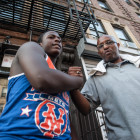
The killing of 18-year-old Tayshana Murphy in 2011 has led to a series of retaliatory beatings, stabbings and shootings between the Manhattanville and Grant Houses in Harlem.
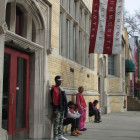
For young residents of Red Hook, N.Y. the chance to keep their record clean, or clear it, can make a world of difference in their future.
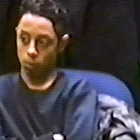
In the United States, false confessions play a role in about one in four wrongful convictions overturned by DNA evidence. The confessions often come forth following hours of interrogation, resulting in a statement of guilt put on paper in front of the investigating detectives or on videotape.
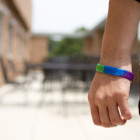
Alyssa Rodriguez, a male-to-female transgender teen, sued New York’s Office of Children and Family Services (OCFS) in 2006 over her treatment while in their custody.

NEW YORK --By the early 1990s, the crack era that devoured New York City in the 1980s was on the decline and crime rates were similarly falling. But Randol Contreras saw something different on the streets in the South Bronx neighborhood where he grew up. His drug dealer friends, no longer making the same money selling crack, were turning to robbing drug dealers for an increasingly dwindling share of the market. One vice traded for another, more violent one. His book "Stickup Kids: Race, Drugs, Violence and the American Dream," published by the University of California Press last month, chronicles the downfall of the drug trade and the young Dominican men from his childhood neighborhood that tried to make an often dangerous living in it.

Not since the opening of the first juvenile reform school in 1886 has our nation’s approach to confining delinquent youth experienced such fundamental and widespread change. From California to New York, states are reducing juvenile placements, shuttering facilities and shifting money and kids to county control. If done thoughtfully, it’s a trend that holds much promise. This national realignment movement took a huge step forward on Sept. 1, when New York state’s “Close to Home” law went into effect.

New York state 16- and 17-year-olds go to adult court, a practice nearly unique to the state. But that may change, as the New York legislature is expected to take another look at proposals to raise the age of criminal responsibility. “New York State is one of two states that automatically tries 16- and 17-year-olds as adults no matter what crime they commit … That’s what we’re trying to change,” said Angelo Pinto, the Raise the Age Campaign manager at the Correctional Association of New York, a progressive nonprofit. CA points to studies that say putting minors through some sort of youth-specific adjudication reduces the chances they will re-appear in court. By contrast, putting them in the adult system makes them more violent. But getting a new law is “not a slam dunk by any means,” said state Assemblyman Joseph Lentol (D-Brooklyn), sponsor of two age-of-responsibility bills this year.

Last week, New York Gov. Andrew Cuomo announced his support of a change to state law that would decriminalize the possession of small amounts of marijuana in public view. Gov. Cuomo made his announcement at a news conference last week at the state capitol in Albany . Also supporting the legislative change was New York City Mayor Michael Bloomberg, New York Police Department Commissioner Ray Kelly and New York City Council Speaker Christine Quinn, who said she has plans to pass a resolution denouncing “unlawful” marijuana arrests. Currently, the state’s legislative session is scheduled to conclude on June 21. Last year, New York City police made more than 50,000 arrests for low-level marijuana possession, ultimately accounting for one out of every seven arrests in the nation’s largest city in 2011.
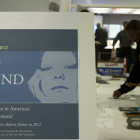
NEW YORK – The John Jay College of Criminal Justice’s Center on Media, Crime and Justice is holding a two-day conference for journalists on its campus in New York Monday and Tuesday. JJIE/Youth Today’s John Fleming and Clay Duda are attending the conference and will be reporting some highlights throughout. While the conference, Kids Behind Bars, Where’s the Justice in America’s Juvenile Justice System?, is primarily meant for journalists, many of the topics will be of interest not only to those in the field, but the general public as well. Speakers on Monday include: Mark Soler, executive director of the Center for Children’s Law & Policy; Vincent Schiraldi, commissioner of New York City’s Department of Probation; Ricardo Martinez, co-director, Padres & Jovenes Unidos and David Utter, director of policy, the Florida office of the Southern Poverty Law Center. Gail Garinger, a former juvenile court judge, who is now the Child Advocate of Massachusetts’ Office of the Child Advocate, will deliver the keynote address.